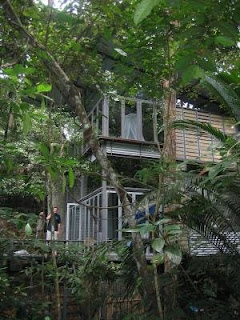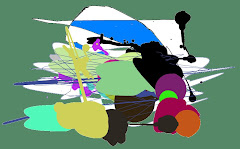 I know this is a quality electronic tune so I whack it on, as I head out from under an archway, over cobbled streets, as the glass of sophisticated restaurants form a precursor of city visions to come.
I know this is a quality electronic tune so I whack it on, as I head out from under an archway, over cobbled streets, as the glass of sophisticated restaurants form a precursor of city visions to come.The morning walk is short, the track is by Northern Ireland’s only dub step artist, Boxcutter, it's called "Sunshine vip". A pleasant scene begins to unfold.
The music starts with a plush piece of ambient loveliness, pan pipes swell over fizzing electric guitars from 2020. Something else sounds like tension. I cross the road carefully avoiding bikes on the inside lane − all the while electronic music oozes, turning right through a small lane lined with Chinese Restaurants, then left as the percussion really kicks in. The jazz groove combines with drill 'n bass sensibilities, as tall glass buildings line this non-descript street of clean lines and BMW. Cool as ice electronic sounds (emotive) appear to bounce from glass and reverberate down a street towards one lonely traffic light. Greek restaurants with tall empty chairs, shiny bars and windows are light reflectors too. Fizz! fizz, fizz, Fizz! Fizz! The sounds go fizz.
Pure urban scenes of morning urgency play by as music allows me to step outside normal fields of perception without being late for lectures i.e. hung-over. Bass from the Amazon River pulsates, wet mysterious sounds appear and disappear, the creatures of a jungle-dark, enchant the hot evening.
They relate their cognitive energy through technological sounds of nature, and occasionally dub reggae. Then sounds of static, the more electrified drill combines with bass as this superb piece of work fades out nobly over green rooftops in New York.
It became a vision of humans living in harmony with nature − so good I didn’t listen to another song all day.
(© Copyright 2008 - James Labous)

 The view from a plane window is a rare insight into how our little world really is.
The view from a plane window is a rare insight into how our little world really is.






